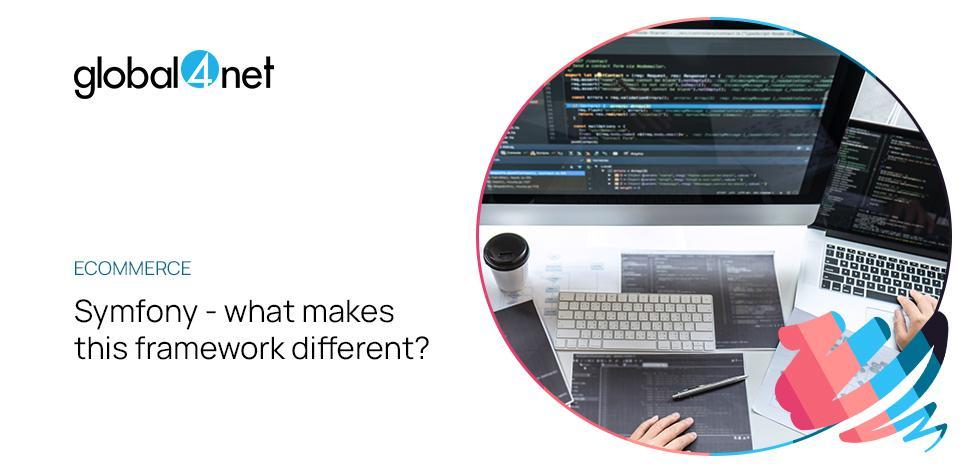ul. Strzegomska 2-4
53-611 Wrocław
NIP 8992786490
KRS 0000608120
REGON 363987723
Global4Net Sp. z o. o.
+48 71 358 41 00
© 2009 – Global4Net. All Rights Reserved.

When starting a project, you have to decide in which technology and with which software it will be created. For example, web development companies: they usually opt for PHP-based frameworks. One of the most popular of these is the Symfony. To what does it owe its popularity?
Symfony was developed in 2011 under an open-source license. It is based on the MVC, which is extremely appreciated in this solution. It also works with a long list of databases like the Drizzle, MySQL, SQLServer, SQLite, Oracle and many others. In terms of what makes it distinctive on the market, Symfony was developed for large projects that are still under development. Examples of projects that use this framework are: Magento, PrestaShop or Drupal. The software works on the principle of modules. Many independent packages of files contain certain functionalities, which enables to make the written code independent from the system. It also makes it easier to use once written parts in new projects.
Several specific features can be mentioned that characterise this framework and distinguish it from others. Among these advantages can be listed:
Are these all the advantages? There are certainly many more strengths to be found in the Symfony. But the ones mentioned above clearly show that it is a framework made for developers and makes their work easier.
One of the greatest advantages of the Symfony framework is its layered architecture. The term MVC means three independent layers:
The MVC architecture is named after the first letters of the layer names. Why is it so important? It is of great assistance when it comes to manage the whole application. It divides the code into many logical, separated parts and allows to make local modifications that do not affect the rest of the application.
Every project must be developed using some kind of technology. Symfony is one of the proposals. Its popularity clearly shows that this choice is often found among different projects. This is because of the many advantages that distinguish this framework from others.
The great flexibility of the Symfony makes it possible to create complex and large projects as well as to work on small tasks. It is up to the developer to choose how many additional modules he or she will need during the work.
Thanks to the MVC architecture, making changes is very easy. Each time, the changes concern only a small part of the project on which work is in progress. The rest of the code remains unchanged.
Eventually, the Symfony also enables you to test your code and fix any bugs. The professional approach to developer’s work and the emphasis on good practices makes it easier to work with applications at a later stage.
Write to us




